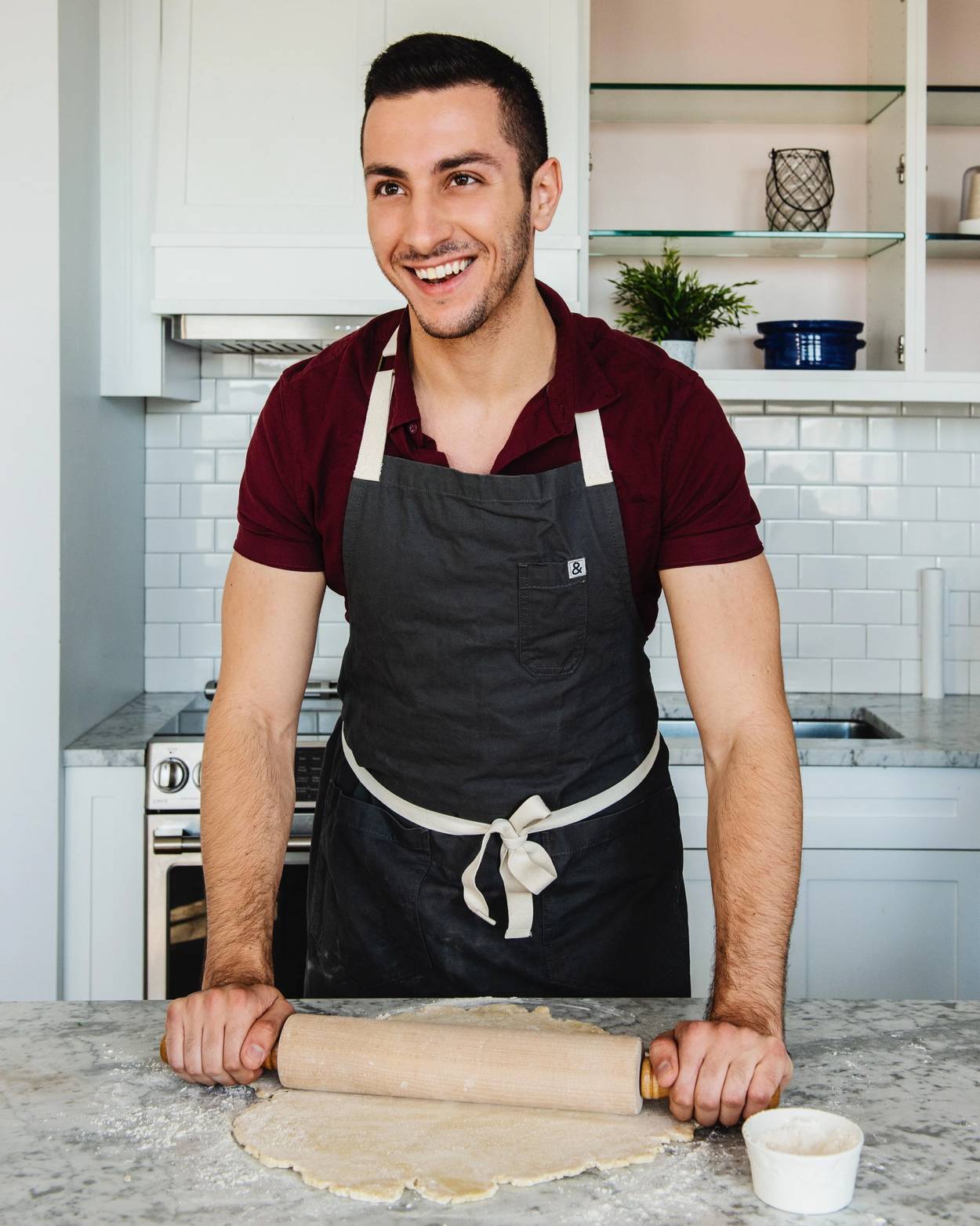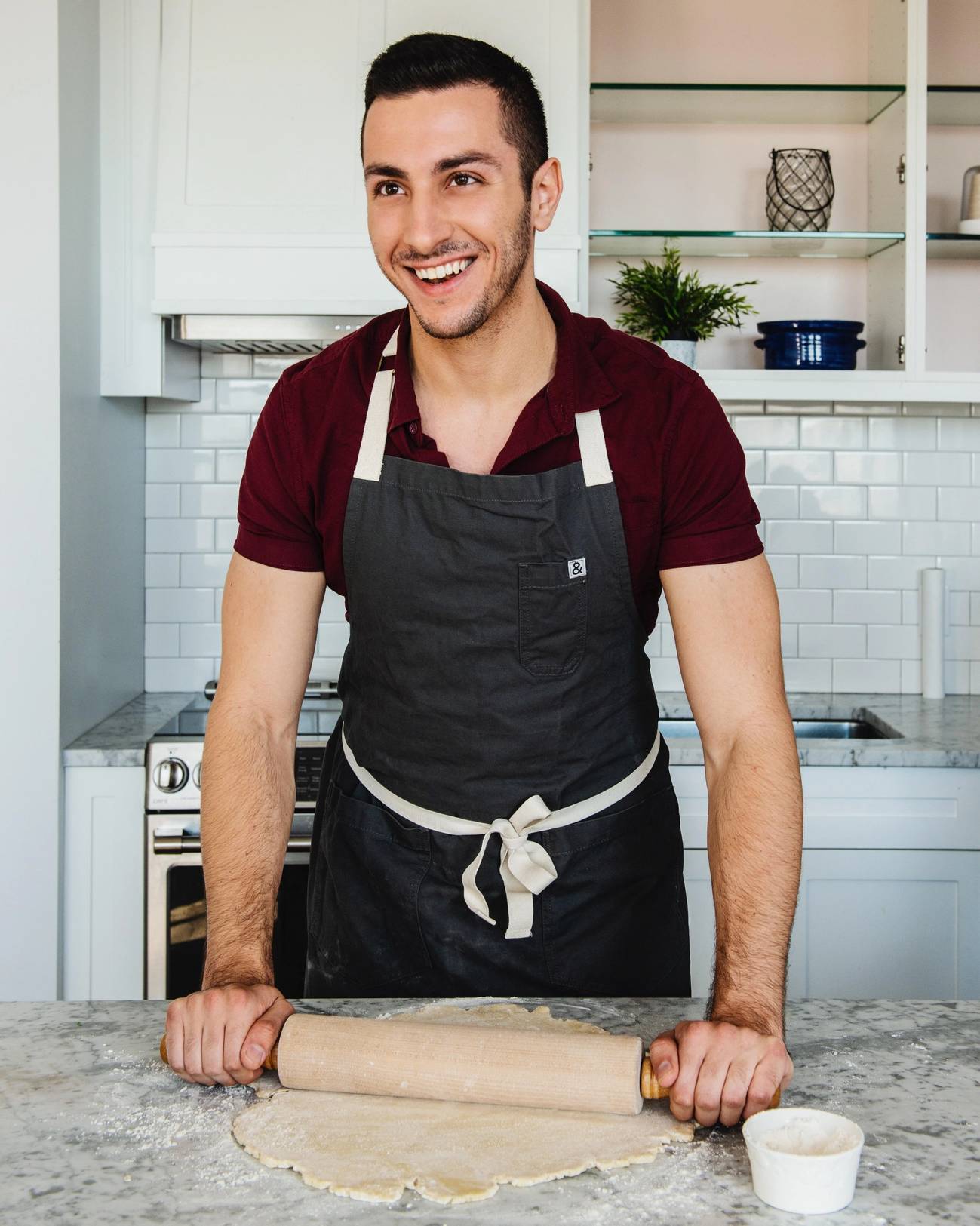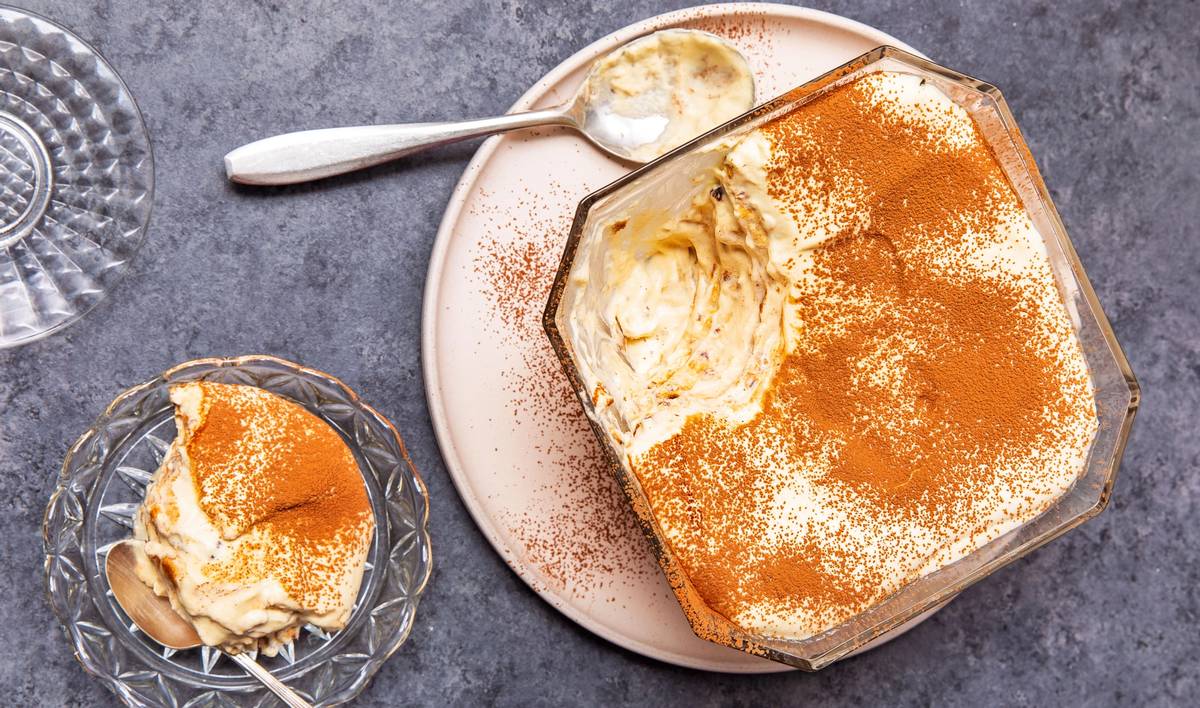The Joy of ‘Jew-ish’ Cooking
Jake Cohen reinvents classic recipes—from brisket and tahdig to challah and pigs in a blanket—in his new cookbook




Witnessing Jake Cohen launch his debut cookbook, Jew-ish, is like attending a marketing master class. Over the past year, as countless authors have struggled to spread the word about their books in the pandemic era (which has rendered the traditional author-signing obsolete), Cohen leaned hard into the social media universe. He announced the book to his half a million TikTok followers, created a digital Haggadah for anyone preordering the book (which came out on March 9, just a few weeks before Passover), and held live Instagram cook-alongs with Jewish food luminaries like Adeena Sussman, Mike Solomonov, and Pati Jinich. He also reached outside the expected influencer box, hosting virtual events with Katie Couric and Crazy Ex Girlfriend’s Rachel Bloom.
It has been equal parts inspiring and exhausting to watch Cohen hustle. But beyond his indefatigable charm and Don Draper-levels of internet-promotion savvy, he has both the real-world talent and earnest passion for Jewish food to back up the hype. And reading through a copy of Jew-ish does what any great cookbook should do: It beckons readers away from the screen, and into their kitchens.
Subtitled “Reinvented Recipes From a Modern Mensch,” Jew-ish offers enlivened takes on Ashkenazi classics—from an everything bagel-spiced tomato galette (“It’s like serving a giant, sliceable everything bagel for a crowd,” Cohen writes) and cardamom-spiced pear noodle kugel to his French onion brisket, which adorns the iconic braised meat with piles of caramelized onions and a generous splash of sherry.
The knish-wrapped pigs in a blanket are Cohen’s ode to his favorite menu item at Knish Nosh, a legendary knish bakery in Queens, where he grew up. “If you serve these with ketchup, you’re dead to me,” he jokes. (Note: According to Cohen, mustard is the only acceptable hot dog condiment.) On the sweeter side of the menu, his tiramatzu (yes, that would be tiramisu made Passover-friendly with matzo instead of ladyfingers) is every bit as decadent as the Italian original.

Despite Cohen’s professional culinary chops—he graduated from the Culinary Institute of America and worked in several professional kitchens before transitioning to food media—his recipes are unfussy and approachable. Many of his spins are deeply intuitive, like the pinch of saffron he uses to upgrade a pot of chicken noodle soup. “Your bubbe could never!” writes Cohen in the recipe’s headnote. And yet, sipping the deeply golden broth, it feels like saffron should have been part of the chicken soup game all along.
Cohen grew up in an Ashkenazi home, but also draws recipes from his husband Alex Shapiro’s Iraqi and Persian family, including a granola with rose water, pistachios, and dates, stuffed eggplant dolmeh, and the crispy, golden-topped Persian rice with tahdig, which he has helped turn into a viral phenomenon. There are also recipes for his signature challah, which regularly glows across his Instagram feed, and instructions for crafting the highly photogenic cheese boards that, in pre-pandemic times, were a fixture of his and Shapiro’s Shabbat table.
Speaking of that Shabbat table, Cohen credits it, and his relationship with Shapiro, as the inspiration for Jew-ish. “At the time I met my husband Alex, we both identified as Jew-ish ... but together we decided that it was important to us to define what our Jew-ish practice would look like as a couple,” he writes in the introduction.
The indisputable core of that practice, it turns out, is hosting Shabbat dinner—something that he did almost weekly in pre-pandemic times for friends, family, and through his partnership with the nonprofit organization OneTable, hundreds of fortunate strangers. “Shabbat is the OG dinner party,” he writes. “It’s self-care through a lush spread of food and wine; no wonder it’s never gone out of style.”
The book’s photo shoot took place in March 2020, right as the world was contracting into lockdown mode. But despite the stressful circumstances, photographer Matt Taylor-Gross’ photos show no hint of being hurried or distracted. On the contrary, they are vibrant and generous—Technicolor odes to the dishes themselves, as well as to Cohen’s approach to cooking and life.
Jew-ish shines because the recipes are stellar. A seemingly simple dish of roasted cauliflower, for example, was transformed into a stunner side with the addition of pine nuts and golden raisins toasted with olive oil and cardamom. But beyond the recipes, it is Cohen himself who makes the book stand out. His writing is funny, candid, and deeply real—qualities that draw followers on social media, but also leave cookbook readers feeling like they are in the kitchen with a friend.
Cohen is unapologetic for his progressive approach to Jewish practice. “I always invite my guests to arrive for Shabbat dinner at 7 p.m., because I care more about my husband making it on time from work than I do about the relative position of celestial bodies,” he writes. And when it comes to kashrut, he does not shy away from, say, serving a buttery apple and honey upside-down cake after a decadent dinner of lamb chops with crushed grapes and sage. Instead, Cohen’s book lays out a vision of Jew-ish tradition that brings him and his loved ones joy and connection, and he invites readers to join him in doing the same. And if there happens to be an epic cheese board or a pumpkin spice babka on the table, all the better.